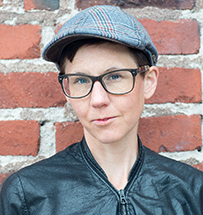Press release -
Have we got the time for democracy?
Exciting and interesting guests in the panel when the highly topical seminar series about the threats to democracy continued at the University of Gävle
In an open seminar series at the University of Gävle, began in the autumn of 2017, participants discussed what is needed to maintain and strengthen democracy.
People who vote “incorrectly”
Democracy faces problems all over the world. Many people aim to establish democracy but, at the same time, democracy is losing its legitimacy in such places where the struggle to establish democracy was hard. Moreover, in country after country, people are said to vote “incorrectly,” for the “wrong” candidate or cause.
Many believed that digitalisation would revitalise democracy, but instead it seems to undermine it. The strength and weakness of democracy is that it is slow. At the same time, the issues society faces today, like climate change, call for urgent action.
Governance by an élite?

Stina Oscarson
An increasing number of people now seriously start to suggest that we need to replace democracy with some sort of governance by an élite to save the planet. Is this really the case or is it something else that is needed? And in that case what?
These issues were discussed on 11 april 2018 at the University of Gävle.
Moderator: Stina Oscarson

For more information, please contact:
Maivor Hallén, Library Director
Phone: 026-64 81 88, 070-605 66 26
Email: maivor.hallen@hig.se
Bengt Söderhäll, senior lecture in curriculum studies
Phone: 026-64 88 69, 076-800 47 72
Email: bengt.soderhall@hig.se
Text: Douglas Öhrbom
Topics
- Literature
Categories
- governance by an élite
- conflict resolution
- stina oscarson
- university of gävle
- sustainable living environment
- sustainable democracy
- art
- culture
- human dignity
- political parties
Education and Research at a Scenic Campus.
The University of Gävle has approximately 17 000 students, more than 50 study programmes and second-cycle programmes, about 1 000 courses in humanities, social and natural sciences and technology.
Research Profiles
Built Environment and Health-promoting Working Life are the general research profiles of the higher education institution. Important parts included are Spatial Planning with a specialisation in Sustainable Built Environment and Musculoskeletal Disorders with the purpose to prevent work-related injuries. In 2010, the higher education institution received permission to carry out third-cycle programmes in the profile area of Built Environment.
The higher education institution has applied for permission to carry out third-cycle programmes in technology, humanities and social sciences.
